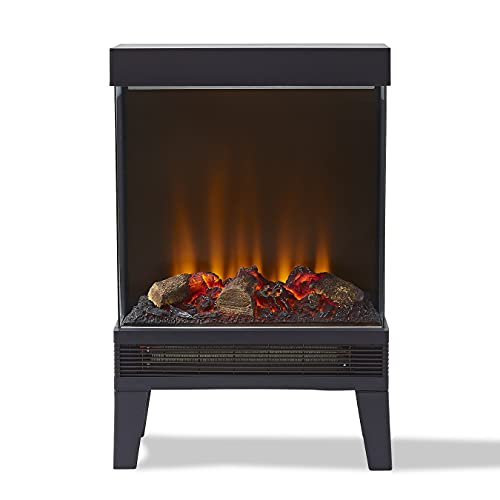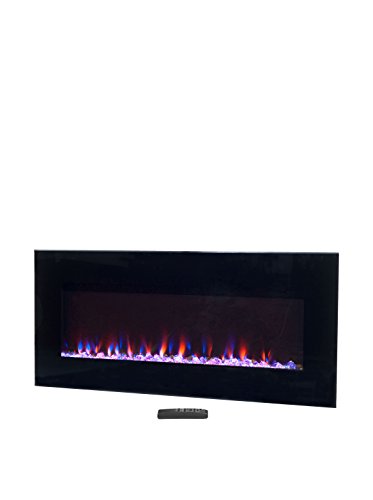The Best Bio Ethanol Fireplace Tricks For Changing Your Life
페이지 정보

본문
 Bio Ethanol fireplaces shop
Bio Ethanol fireplaces shop Ethanol fireplaces are excellent to add a warm feel to any room without the need for costly structure work or gas supply. They are the safest kind of fire available.
Ethanol fireplaces are excellent to add a warm feel to any room without the need for costly structure work or gas supply. They are the safest kind of fire available.As long as you use bio-ethanol fuel that has been specifically formulated for your fire and you follow the safety guidelines, your fireplace should be safe to operate.
Installation is simple
Ethanol fireplaces are a simple and quick solution for homeowners who want to revamp their living space or add a focal point to their home decor. They do not require a flue, and don't create dangerous smoke and you don't have to worry about the build-up of soot on your walls or ceilings.
If you decide to go with an entire fire suite - such as Mano Mano's Adam Solus Fireplace Suite in Oak with Colorado Bio Ethanol Fire in Black from PS569 - or a freestanding model that can be moved from room to room (such as the Planika Petit, PS191), installation is simple and requires no specialist help. All you need to do is make sure that the ceiling or wall is sturdy and adhere to the directions of the model you pick.
If you choose a wall-mounted ethanol fireplace, most are supplied with the necessary hardware to allow them to be either hung as a flat-screen television or installed into the wall. It will take an experienced professional around an hour to install the brackets, extensions and locate the studs.
You can also choose between manual and automatic bio ethanol burning devices. The automated burner is designed to keep the fuel away from the flames so it can burn longer without the risk of overheating or running out of. Manual burners work exactly the same way as an old-fashioned fireplace, but you'll need matches or lighters to ignite the flames.
It's important to remember that when choosing a bio-ethanol burner, the burner should be covered with non-combustible material. This will ensure that nothing touches the burning fuel. If you don't cover your burner, it could cause the fire to overheat. This could damage the tabletop Fireplace.
Ethanol fireplaces are a great alternative for those who want to create a dramatic feature in their home but don't have the funds or time to set up a wood or gas fireplace. These are ideal for new construction and renovations where chimney breasts were removed. They don't generate soot or ash, which means there's no need for maintenance.
Styles and designs
Bio-ethanol fireplaces are available in various styles and designs. Some have a more traditional wood-burning look, whereas others are designed to be modern and sleek. Every type of fireplace offers the same advantages, regardless of design: a real flame ambience free of harmful gasses or smoke.
Ethanol fireplaces can be freestanding or wall mounted. Freestanding models are more mobile and can be moved around the room according to what is desired. Wall-mounted models are attached to the walls and may require special mounting gear. They must also comply with certain distances between flammable materials and the unit.
The fire is created by a burner pan located on the bottom of the electric fireplace. Fuel is poured in this pan and the fire is then lit by a long lighter. It takes about 15 minutes for the flames to reach their full potential. Once the flames are established then it's time to relax, unwind and enjoy the warm atmosphere of your home.
Some ethanol fire places even offer temperature settings that can be adjusted. This allows you to customize the amount of heat your fireplace produces, which is beneficial if you wish to give you more warmth than simply ambience.
Another benefit of ethanol fires is that there is no need for a chimney or flue. This makes them a great option for new homes or older homes without traditional chimney breasts or fireplaces. A bio-ethanol fire does not emit harmful gases or ash, which are dangerous to people suffering from respiratory ailments.
Installing bioethanol fireplaces in your home is also easy. The exact time to install them will depend on the type of fireplace you select. However, most models can be set up fairly quickly. You can even choose a portable fireplace that you can take with you if you ever relocate, making it an ideal choice for a temporary living arrangement. It is important to consider the ease of installation when purchasing a fireplace.
No flue
The big advantage bio ethanol fires have over traditional wood or gas fires is that they don't require an exhaust pipe to run. In the end, there is no risk of chimney fires that can be caused by a build-up of tar or a blockage in the flue.
A bio-ethanol fireplace also doesn't produce a lot of particulates that can damage the air quality, which is a great thing for those who suffer from asthma or allergies. The fire doesn't produce smoke, which means it doesn't create a bad smell in the room.
Unlike a wood-burning fireplace, bio ethanol fires don't lose much heat through the chimney, and therefore produces a huge amount of heat for its size. This means you can keep your furniture near the flame without having to worry about catching a flame, which could be dangerous for your valuables.
If you decide to go with a freestanding bio-ethanol fireplace, there are a few different designs to choose from. You can select an installation on the wall for a sleek, modern look or a recessed model which will blend in with the style of your home.
Another thing to consider is whether you want either a manual or automatic burner. A manual burner requires that you ignite the fuel directly from the reservoir. A burner that is automated will light your fire automatically once the tank is empty.
When you've finished using your bio ethanol fireplace, it is important to let the flames burn out completely and wait until the burner is cool before refilling. Otherwise the ethanol will vaporize and you'll need to start again.
Most manufacturers recommend that you allow at minimum 45 minutes between refilling your fire, to ensure that you have plenty of time to properly put out the flames and ensure all flammable materials are away from the flame. To avoid any accidents, store any remaining fuel ethanol away from pets and children.
Easy maintenance
The bio ethanol fuel is poured into the burner, and then ignited. The flame and heat produced by the burning fuel can be controlled by the slider. (Not all models have this feature). By adjusting the amount of oxygen that is pumped into the fire, you can change how quickly the fuel is burned and how high the flame burns.
The soot that is produced by the burning of fuel is easily removed using a an easy, clean cloth. The only other thing to do is to ensure that the burner is filled with the correct fuel and ensuring that it's a safe distance away from any fire-prone objects or supplies.
Bio-ethanol fireplaces are easy to install and you don't need to worry about chimneys or building codes. This gives you great flexibility in designing your home, and the location you wish to enjoy the warmth of your fireplace. You could even choose to have a freestanding model that you can move from room to room.
Wall-mounted bioethanol fireplaces are simple to set up and some models allow you to rotate the unit by 180 degrees, allowing you to direct the heat and flame towards the desired location of the room. Certain models come with remote control that allows you to control the fireplace from your couch.
For maximum flexibility, a majority of the 'plug and play' wall-mounted bioethanol fireplaces come with brackets that let you attach them to an unfinished or sloped ceiling. This lets you place the fireplace wherever you like it, and be in a position to turn the flame off or on and adjust the flame's height, and set the temperature with the remote control.
When you are not using your ethanol fire, make sure that it is turned off and a safe distance away from any flammable materials or other equipment. Do not add any fuel into the burner until the burner has reached room temperature. Be careful when handling it because it's extremely hot.
- 이전글13 Things You Should Know About Crypto Casino Us That You Might Not Have Known 24.11.27
- 다음글youtube downloader 737 24.11.27
댓글목록
등록된 댓글이 없습니다.














